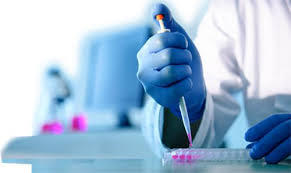
Biochemical Principles:
The nature of biological molecules: Proteins, nucleic acids (DNA and RNA), lipids, carbohydrates.
Chemical properties of biological molecules: Structure, bonding, and reactivity.
Enzymes and enzyme kinetics: How enzymes catalyze biochemical reactions.
Metabolism:
Metabolic pathways: Glycolysis, Krebs cycle, oxidative phosphorylation, and more.
Catabolism and anabolism: Breaking down and building up of biomolecules.
Regulation of metabolism: Hormones, feedback loops, and metabolic control.
Cell Biology:
Cellular organelles and their functions: Nucleus, mitochondria, endoplasmic reticulum, etc.
Cell membrane structure and transport mechanisms.
Signal transduction pathways: How cells communicate and respond to stimuli.
Genetics and Molecular Biology:
DNA structure and replication.
RNA synthesis and processing.
Genetic information flow: Transcription, translation, and gene regulation.
DNA repair, recombination, and transposition.
Proteins and Enzymes:
Protein structure and folding.
Protein function and ligand binding.
Enzyme mechanisms and kinetics.
Protein purification and analysis.
Biochemical Techniques:
Various laboratory techniques used in biochemistry and molecular biology, such as gel electrophoresis, PCR (Polymerase Chain Reaction), Western blotting, and mass spectrometry.
Bioinformatics:
The use of computational methods and tools to analyze biological data, including sequence analysis, structural bioinformatics, and genomics.
Biological Macromolecules:
The structure and function of biological macromolecules, including DNA, RNA, proteins, and polysaccharides.
Biological Membranes:
Membrane structure, transport mechanisms, and signal transduction.
Molecular Genetics:
Study of gene structure, regulation, and expression.
Cell Signaling:
Cellular communication and signal transduction pathways.
Cancer Biology:
Understanding the molecular mechanisms underlying the development and progression of cancer.
Biochemical Pathways:
Detailed examination of metabolic and biochemical pathways in various organisms.
Biochemical Pharmacology:
The study of drugs and their interactions with biochemical processes in the body.
Biotechnology and Genetic Engineering:
Applications of biochemistry and molecular biology in genetic modification, biopharmaceuticals, and genetic testing.
Environmental Biochemistry:
The study of how biochemical processes influence the environment and ecosystem.









